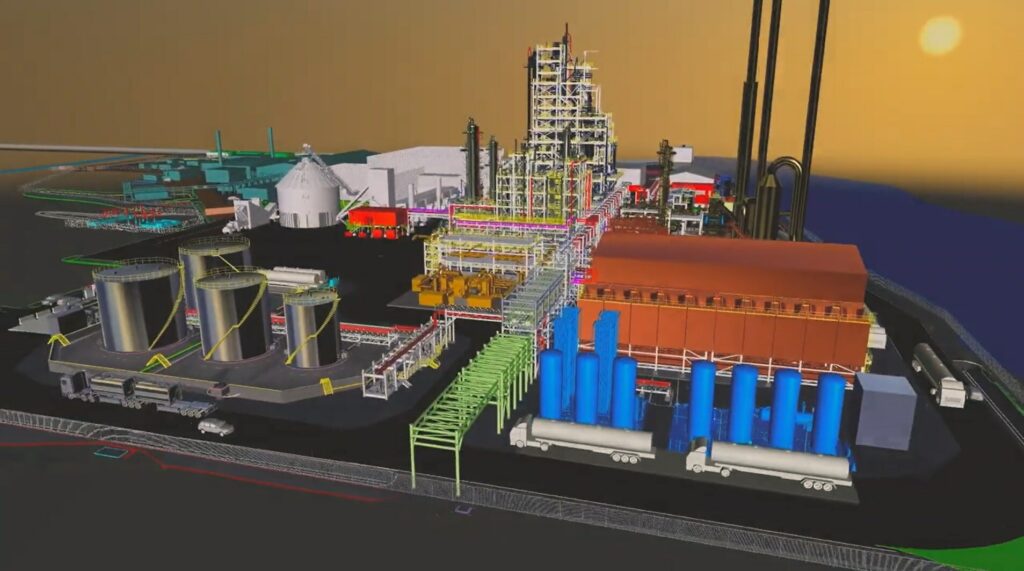
CIB loans $277M towards biorefinery and Canada’s largest electrolyzer
by CM staff

Facility to convert 200,000 tonnes of waste into biofuels and circular chemicals annually.

Photo: CNW Group/Canada Infrastructure Bank.
VARENNES — The Canada Infrastructure Bank (CIB) has concluded the financing on its first project from its low-carbon fuels, carbon capture utilization storage and hydrogen initiative with support for a biorefinery and the country’s largest electrolyzer.
“The largest biorefinery in Canada will open its doors in Varennes, with the help of a loan from the Canada Infrastructure Bank,” said Pablo Rodriguez, Minister of Canadian Heritage and Quebec Lieutenant, on behalf of the Honourable Dominic LeBlanc, Minister of Intergovernmental Affairs, Infrastructure and Communities. “By supporting innovation here at home, the Canada Infrastructure Bank is giving Canada more tools to continue the fight against climate change, creating good jobs and generating wealth, here in Quebec.”
Under the terms of the agreement, the CIB will provide a loan of $277 million to a joint-venture partnership between Shell, Suncor, Proman and the government of Québec that will enable construction of Canada’s largest biorefinery, based on a technology platform developed by Enerkem.
The $1.2 billion facility – known as Varennes Carbon Recycling – will include an electrolyzer which will supply clean hydrogen and oxygen to convert over 200,000 tonnes of non-recyclable waste and residual biomass into biofuels with a capacity of up to 130 million litres annually.
The project is expected to create over 500 jobs at the peak of construction and about 100 permanent jobs once operational.
The project will be using Enerkem’s proprietary thermochemical process. The carbon recycling facility is expected to cut over 170,000 tonnes of greenhouse gas emissions annually and 4.25 million tonnes over the project’s 25-year lifespan. The annual reduction is equivalent to taking 50,000 passenger vehicles off the road.
“Clean fuels are an essential part of the clean technology mix in a net-zero world,” said Jonathan Wilkinson, Minister of Natural Resources. “While electrification will be a chosen route in some sectors, clean fuels will also play a very significant role going forward. Projects like this will accelerate important work to help Canada achieve its ambitious environmental and economic objectives – I look forward to continuing to work with the Canada Infrastructure Bank and private sector partners to produce the clean hydrogen the world needs.”